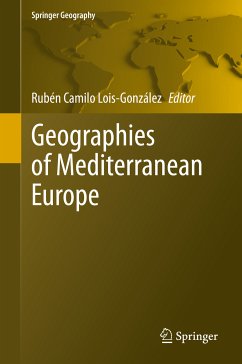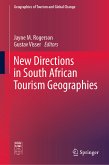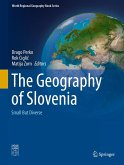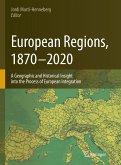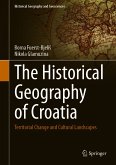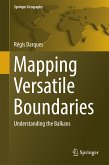Geographies of Mediterranean Europe (eBook, PDF)
Redaktion: Lois-González, Rubén Camilo


Alle Infos zum eBook verschenken

Geographies of Mediterranean Europe (eBook, PDF)
Redaktion: Lois-González, Rubén Camilo
- Format: PDF
- Merkliste
- Auf die Merkliste
- Bewerten Bewerten
- Teilen
- Produkt teilen
- Produkterinnerung
- Produkterinnerung

Hier können Sie sich einloggen

Bitte loggen Sie sich zunächst in Ihr Kundenkonto ein oder registrieren Sie sich bei bücher.de, um das eBook-Abo tolino select nutzen zu können.
This edited volume highlights the geographies of six European Mediterranean countries: France, Spain, Italy, Portugal, Turkey and Greece. The book provides a balanced overview on what the geographers of these six countries have investigated and reflected in recent decades. This thematically arranged book takes into account the national differences of the authors, but also highlights the main contributions of Mediterranean geographies on a global scale. It reinforces a perception of common problems and debates in Southern Europe. This book appeals to the institutionalized geographical…mehr
- Geräte: PC
- ohne Kopierschutz
- eBook Hilfe
- Größe: 12.18MB
![New Directions in South African Tourism Geographies (eBook, PDF) New Directions in South African Tourism Geographies (eBook, PDF)]() New Directions in South African Tourism Geographies (eBook, PDF)89,95 €
New Directions in South African Tourism Geographies (eBook, PDF)89,95 €![Ethnic Landscapes of America (eBook, PDF) Ethnic Landscapes of America (eBook, PDF)]() John A. CrossEthnic Landscapes of America (eBook, PDF)137,95 €
John A. CrossEthnic Landscapes of America (eBook, PDF)137,95 €![Creative Industries in Europe (eBook, PDF) Creative Industries in Europe (eBook, PDF)]() Creative Industries in Europe (eBook, PDF)81,95 €
Creative Industries in Europe (eBook, PDF)81,95 €![The Geography of Slovenia (eBook, PDF) The Geography of Slovenia (eBook, PDF)]() The Geography of Slovenia (eBook, PDF)161,95 €
The Geography of Slovenia (eBook, PDF)161,95 €![European Regions, 1870 - 2020 (eBook, PDF) European Regions, 1870 - 2020 (eBook, PDF)]() European Regions, 1870 - 2020 (eBook, PDF)137,95 €
European Regions, 1870 - 2020 (eBook, PDF)137,95 €![The Historical Geography of Croatia (eBook, PDF) The Historical Geography of Croatia (eBook, PDF)]() Borna Fuerst-BjelisThe Historical Geography of Croatia (eBook, PDF)113,95 €
Borna Fuerst-BjelisThe Historical Geography of Croatia (eBook, PDF)113,95 €![Mapping Versatile Boundaries (eBook, PDF) Mapping Versatile Boundaries (eBook, PDF)]() Regis DarquesMapping Versatile Boundaries (eBook, PDF)121,95 €
Regis DarquesMapping Versatile Boundaries (eBook, PDF)121,95 €-
-
-
Dieser Download kann aus rechtlichen Gründen nur mit Rechnungsadresse in A, B, BG, CY, CZ, D, DK, EW, E, FIN, F, GR, HR, H, IRL, I, LT, L, LR, M, NL, PL, P, R, S, SLO, SK ausgeliefert werden.
- Produktdetails
- Verlag: Springer International Publishing
- Seitenzahl: 395
- Erscheinungstermin: 11. Dezember 2020
- Englisch
- ISBN-13: 9783030494643
- Artikelnr.: 61391402
- Verlag: Springer International Publishing
- Seitenzahl: 395
- Erscheinungstermin: 11. Dezember 2020
- Englisch
- ISBN-13: 9783030494643
- Artikelnr.: 61391402
- Herstellerkennzeichnung Die Herstellerinformationen sind derzeit nicht verfügbar.
